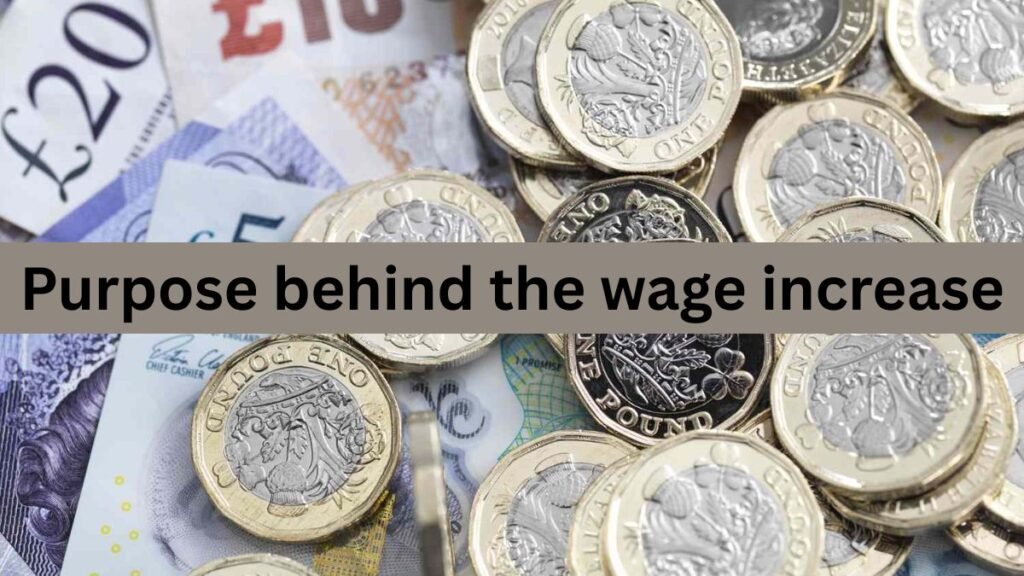UK Minimum Wage 2025: New wage rates that will change the lives of millions of workers
The UK government has announced an increase in the minimum wage rates for the year 2025. This decision will not only improve the economic condition of the workers, cost of living but this change will also have a wide positive impact on the society. Especially for those employees who are working on low wages, this news is like a sigh of relief.
In this article, we will understand in detail what these new rates are, who will get the benefit of this, when will it be implemented and how it will affect your pocket.
What is minimum wage?
Minimum wage means the minimum amount that should be given to an employee per hour, so that he can meet his basic needs. This rate may vary depending on age and job role.
There is the minimum wage in U.K which is known as National Minimum Wage (NMW) and National Living Wage (NLW). The workers aged 23 and above are paid at National Living Wage rate, but the younger ones receive National Minimum Wage.
New rates have been announced in 2025
The British government has unveiled new wage rates that will be effective in 2025 as stated:
- The minimum wage within this age group (aged 23 and over) is presently set at; 11.44 a hour (was previously 10.42 per hour)
- At 21-22 years: 10.18 an hour (down 4 pence an hour on the previous rate of 10.18)
- Aged 18-20 year old: 8.60 an hour
- To apprentices: 6.40 an hour
- This will take place as increase with effect April 2025.
Who will benefit the most?
This change will benefit the most low-income workers who are employed in sectors such as retail, hospitality, delivery, cashier, cleaning, nursing and temporary labor. The government says that more than 2 million employees will be directly benefited by this.
Purpose behind the wage increase

This increase in the minimum wage is not just an economic decision, but it is part of the government’s policy under which it wants to make Britain a “fair wage society”. The reason it was implemented is to relieve the workers of inflation and allows them an opportunity to have a good life.
Do employers have to do it?
Yes. This regulation is a legal one. Through this, it can be understood that when a firm or employer pays its workers less than that stipulated as the minimum wage, then the law is being broken and they may incur fine or be taken to court.
What will the youth and apprentices get?
Now youth and apprentices will also get better salary than before. The government believes that even younger employees have difficulty in meeting their expenses, especially in terms of education and rent. Therefore, rates have been increased for them as well, which is a commendable step.
How much does this increase match inflation?
Inflation rate in Britain has been continuously high – especially in the field of energy, food and rent. In such a situation, this minimum wage increase has brought relief to those whose income was already limited. However, many experts believe that the increased salary will not be able to completely balance inflation, but it is definitely a positive start.
Will this increase be applicable to all sectors?
Yes, no matter which sector you are working in – whether it is healthcare, hotel industry, construction, factory work or delivery – if you come under the purview of the National Minimum Wage, then you will get these increased rates.
What will be its social impact?
Improving the standard of living of a large population will reduce social inequality. There is going to be increased self-reliance amongst people, there will be less tension in families and economy will also get a boost as people will start spending more.
What happens when your employer is failing to pay the new salary?
In case, an employer does not pay new rates after April 2025 the employee may complain to HMRC (Her Majesty Revenue and Customs). It is also possible to make your complaint and no one will know your true identity.
Conclusion
This new policy of UK Minimum Wage 2025 is a huge step, which will bring real improvement in the lives of millions of employees. This is not just a salary hike, but a strong initiative towards respect, self-reliance and a better future. The government, employers and employees – all three have to strengthen this system together, so that every hardworking person gets his due.
FAQs
Q1. What is the new minimum wage in the UK for 2025?
A. As of April 2025, the National Living Wage for workers aged 23 and over will rise to £11.44 per hour. Other age-specific rates have also been increased.
Q2. Who will benefit from the UK Minimum Wage 2025 update?
A. Millions of low-paid workers across retail, hospitality, healthcare, and other sectors are expected to benefit, especially those earning below the new wage thresholds.
Q3. When will the new minimum wage rates take effect?
A. The updated rates are scheduled to come into effect from April 2025.
Q4. Is the new wage rate mandatory for all employers?
A. Yes, it is legally binding. Employers must comply with the updated rates or face penalties and potential legal action.
Q5. What happens if my employer doesn’t pay the new minimum wage?
A. You can report the issue to HMRC (Her Majesty’s Revenue and Customs). They have the authority to investigate and enforce payment with penalties.


